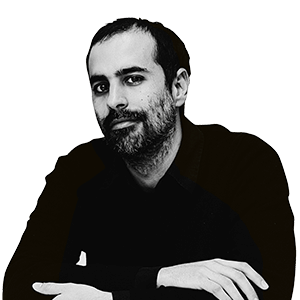"You can kill your father, but not your mother, because you would kill a part of yourself."
Julia Ducournau opens the Sitges Film Festival with 'Alpha,' the director's return after winning the Palme d'Or for 'Titane.'


Silos"I feel like a lot of time has passed and we've all grown up," he says with a nostalgic smile. Julia Ducournau (Paris, 1983) recalling his first visit to the Sitges Film Festival to present his debut film, Raw, one of the sensations of the 2016 edition. "I have great memories of the festival, I had a great time," he adds. Nine years and a Palme d'Or later (for Titane), Ducournau is still that tall and magnetic young woman who, due to her attitude and cinematic tastes, could be mistaken for the festival audience, but now she opens Sitges with Alpha. She's left her jeans and t-shirts in the closet and wherever she goes she's surrounded by a group of fans and cameras, as befits one of the star directors of new European cinema.
Her third feature film, a family triangle of love, guilt and despair between a thirteen-year-old girl, her mother and her drug-addicted uncle, tells a story more rooted in reality than her previous ones, but shares an interest in the transformations of female identity and the mutations of bodies. "All my films talk about a protagonist who emancipates himself from society or his family and who, in some way, tries to take control of his own humanity," says the director.
Although the success of Titane turned all eyes to his next film, Ducournau assures that Alpha It's not a reaction to the expectations generated by the Palme d'Or. In fact, the story of the film had been in mind for some time, but as a project to direct when I was older. "The bond between mother and daughter structures the film, and it's a complicated relationship to tackle," she says. "The figure of the father isn't easy either, because it deals with the need for external validation that we feel and that is sometimes transferred to society. It's not easy to detach yourself from it, but it can be done: you can kill your father, but not your mother, but not your mother, but not your mother. It's a symbiotic relationship from which we come, and it's a bond that never disappears, it always remains within you. And how do you emancipate yourself from this?"
Alpha, the girl in the lead role, lives with the extreme anguish of having contracted a deadly virus after getting a tattoo at a party. The virus gradually turns the bodies of its victims into marble, and those infected (or potentially infected) are repudiated by society in a way that inevitably brings to mind the AIDS epidemic of the 1980s and 1990s, also due to the period in which it is set. However, Ducournau says the film isn't so much about AIDS as it is about "the contamination of fear." "If I had wanted to make a film about AIDS, I would have shown the disease as it is and I wouldn't have invented other symptoms and another name," he says. "But it does have to do with my records from that time about how the entire world turned against a portion of the population, making them feel ashamed, that they deserved the disease. It was a particularly inhumane way of treating people, which reached its peak in the 1990s."
Connection with Carla Simón
Although he doesn't want to go into details, Ducournau explains that AIDS struck his family and, therefore, he is well aware of the stigma carried by those who suffered from it. In this sense, his case is somewhat reminiscent of that of Carla Simón, with who coincided at the last Cannes Film Festival, where Alpha competed with Pilgrimage for the Palme d'Or. "It's no coincidence that the two films touch on the same theme," says Ducournau. "I like Carla Simón, I love her and her work. And it's not just the two of us; I've seen a lot of artwork lately that deals with AIDS. And I think it has to do with the very dark times we're living in, which remind us of that era. generation, but this is the first time in my life that I feel like the world is reaching an end point, where the future is extremely compromised."
